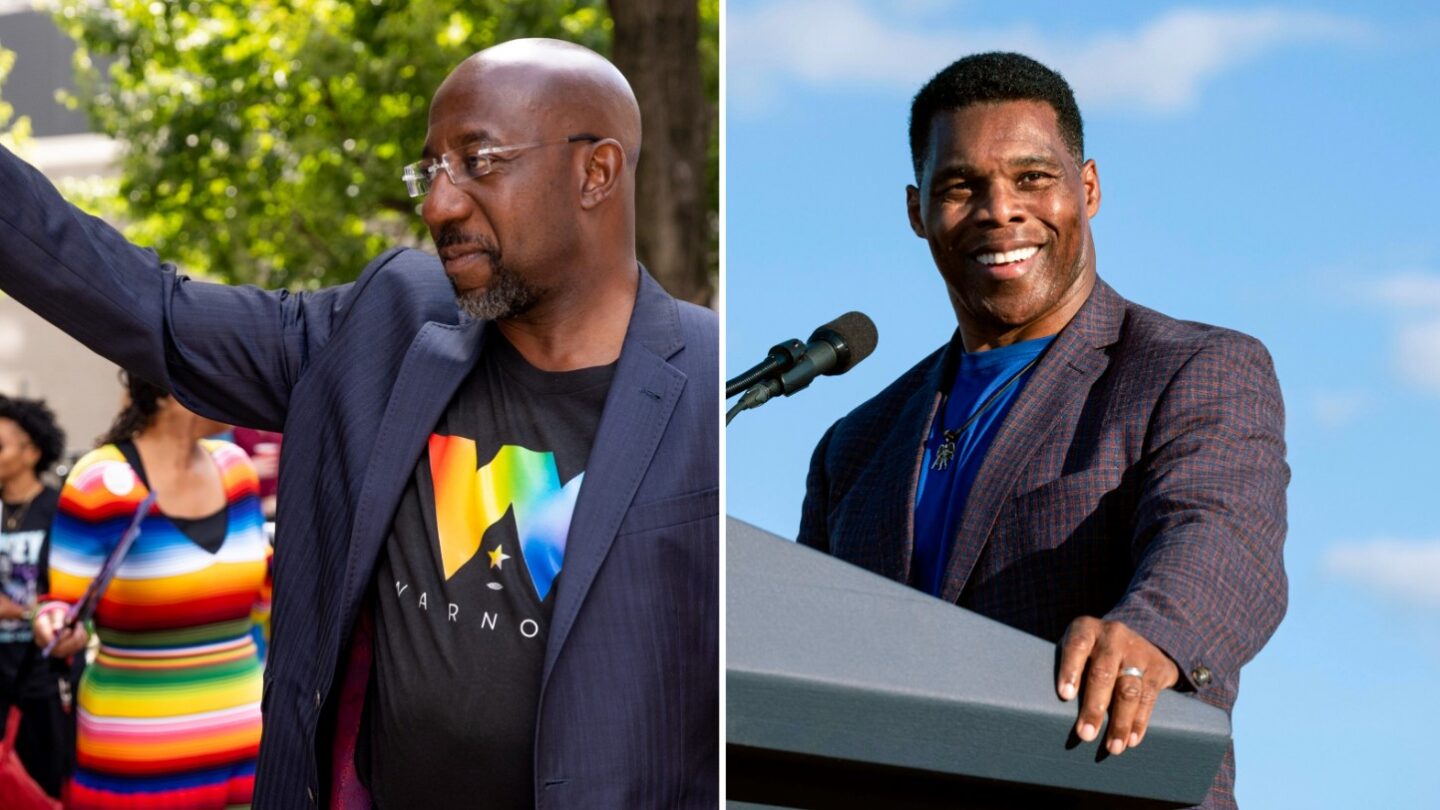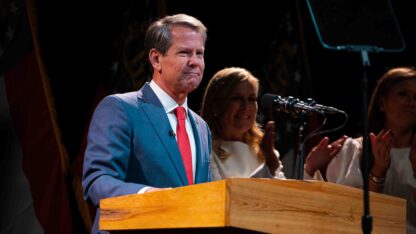Herschel Walker and Sen. Raphael Warnock may be enjoying a break from their hectic campaign schedules for now, but they will soon be back on the roads and the airwaves hoping to convince Georgians to vote for them in the Dec. 6 runoff election.
So will the grassroots organizations that aim to help them. On Wednesday, a group of leaders of progressive organizations outlined their plans for the coming political blitz.
“What we’re doing for the remainder of the week is we’re going to give Georgians a little bit of a break,” said New Georgia Project Action Fund CEO Kendra Cotton. “And we’re probably going to take a little bit of a break. But we plan to start our runoff field program on Monday. We’re implementing a layered approach on doors, phones, texts and other outreach to retouch people we’ve already engaged this year, especially in high density areas.”
Cotton said people her group reached out to during the early vote were at least three times more likely to cast a ballot.
“So we feel quite confident that when we reach out to those voters again, they’re going to show up again,” she said.
This runoff will be all about getting loyal voters back to the polls, said University of Georgia political science professor Charles Bullock.
“The biggest challenge, and this will be true for both Democrats and Republicans as they move forward into this runoff, is to get the people who voted for your person in November to come back and vote again in the second round,” he said.
“If the situation would be one in which either Warnock or Walker could get exactly the same number of votes in December as they got yesterday, they probably would win because of the drop-off that’s likely to occur,” he added. “So it’s easier to mobilize people who are already on your side or prospectively would be on your side than try to have any converts.”
During the last runoff election that put Warnock into office, the general election was Nov. 3, 2020, and the runoff was Jan. 5, 2021. This time, the window will shrink from nine weeks to four, which will put pressure on both sides’ get-out-the-vote strategies.
“The Secretary of State’s website says early voting will begin as soon as possible,” Cotton said. “So while we wait for that update, we anticipate early voting to be Nov. 28 through Dec. 2. But once we confirm, we will make sure that all of our voter resources are fully up to date so that Georgians know when they need to show up and show out in the polls one more time. Because of the short timeframe, we’ll be encouraging folks to get out and vote in person if they’re able over absentee balloting.”
Getting people to the polls is the most visible part of the action, but a whole lot also goes on behind the scenes, said Care in Action Executive Director Hillary Holley.
“When we get the voter files, we’re going to get so curious,” she said. “And Georgia’s coalition is the best at it, and we’re going to come together and actually look at each voter, we’re going to dissect, you know, what were white voters thinking in this area of the state? What were Black male voters thinking in this area of the state? What were AAPI voters thinking over here? Because it’s all different.”
“We work collectively across the board,” she added. “And I know, because we’ve seen it before, that because of this coalition work, we are able to build bridges in really beautiful ways to get over the finish line, and that’s exactly what we’re going to do with this U.S. Senate runoff.”
Conventional wisdom says that Republicans are more likely to show back up in runoffs, but Aisha Yaqoob Mahmood of the Asian American Advocacy Fund says that’s based on outdated data.
“Our organizations were not around when some of these other runoff elections happened,” she said. “But we showed up in 2020 and then the 2021 runoffs, and we will continue to do that this December. We have been planning for this runoff for a couple of weeks now and have an incredible ground game prepared and ready to go soon as possible. We hope to knock just as many doors as we did in the general election in this short time period.”
Mahmood said much of the focus will likely be on densely populated metro Atlanta counties like Gwinnett and Cobb and north Fulton, and voters across the entire state can expect to be contacted by mail, phone or digital ads.
“I think the really key difference for us this time around is to focus in on any in-person early voting opportunities because we know that our communities do show up early,” she said. “And we know that absentee voting cannot be the main option to turn out this time around, so we’re looking forward to seeing how these early voting dates pan out and to really plan targeted outreach so that we can get our communities out as early as possible and not let anyone wait till Dec. 6 to cast a ballot.”









